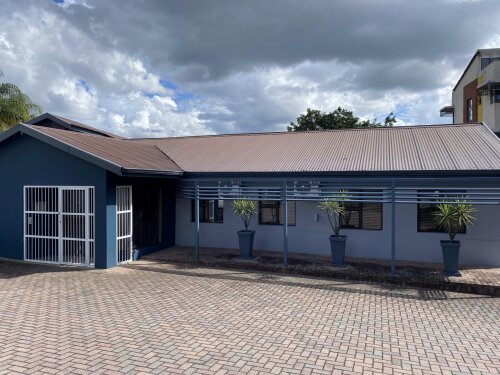Best Energy, Environment & ESG Lawyers in Johannesburg
Share your needs with us, get contacted by law firms.
Free. Takes 2 min.
List of the best lawyers in Johannesburg, South Africa
About Energy, Environment & ESG Law in Johannesburg, South Africa
Johannesburg is a leading economic and industrial hub in South Africa, and as such, the city plays an essential role in the country’s energy and environmental sectors. Energy, Environment and ESG (Environmental, Social and Governance) law in Johannesburg encompasses the legal framework that regulates how businesses and individuals interact with natural resources, energy generation and distribution, and compliance with environmental standards. ESG considerations are also increasingly influencing business operations, requiring companies to address their social and environmental impact. These laws are designed to ensure sustainable development, protect natural resources, promote renewable energy, and socially responsible governance. For businesses and individuals operating in Johannesburg, understanding these legal requirements is crucial for compliance and for fostering responsible growth.
Why You May Need a Lawyer
A lawyer who specializes in Energy, Environment & ESG law can provide invaluable assistance in many situations in Johannesburg. Common scenarios include:
- Starting or expanding an energy-related business, such as solar or other renewable energy projects.
- Applying for environmental permits or licenses for industrial, commercial, or residential developments.
- Dealing with allegations of environmental non-compliance or pollution.
- Responding to regulatory investigations or enforcement actions from government bodies.
- Participating in environmental impact assessments (EIAs) for new projects.
- Integrating ESG principles into business strategies to attract investors and comply with international best practices.
- Litigating disputes relating to environmental harm, land use, water rights, or energy supply agreements.
- Advising on carbon credits, emissions trading, and climate change obligations.
- Navigating complex electricity supply, grid access, or independent power producer agreements.
- Ensuring ongoing compliance with changing environmental and energy regulations.
Local Laws Overview
Energy, Environment & ESG law in Johannesburg operates within a well-developed national and provincial legal framework. Key aspects include:
- The National Environmental Management Act (NEMA) - This act sets out the guiding environmental principles for sustainable development, requires EIAs, and dictates waste and pollution control.
- The Electricity Regulation Act - Regulates electricity generation, transmission, and distribution in South Africa, including licensing requirements managed by the National Energy Regulator of South Africa (NERSA).
- The Carbon Tax Act - Imposes a tax on greenhouse gas emissions, incentivizing businesses to reduce their carbon footprint.
- Johannesburg’s Municipal By-Laws - Local environmental policies around waste management, water usage, and pollution are also important, with the City of Johannesburg enforcing additional standards.
- Integrated Resource Plan (IRP) - South Africa’s national roadmap for electricity supply and demand, influencing which energy projects are approved and incentivized.
- ESG Disclosure Requirements - Growing emphasis on reporting climate, social, and governance practices for listed companies, often guided by voluntary frameworks but increasingly subject to statutory and market-driven requirements.
- Conservation Legislation - Laws such as the National Water Act, National Environmental Management: Biodiversity Act, and others protect water resources and biodiversity.
For anyone planning projects or operating businesses in Johannesburg, awareness and compliance with these legal requirements is essential to avoid legal risks, fines, and reputational harm.
Frequently Asked Questions
What is an environmental impact assessment (EIA) and when is it needed?
An EIA is a study required by law before certain developments or activities can begin. It assesses the potential impact of a project on the environment and includes public participation. Typically, EIAs are required for large infrastructure projects, industrial activities, or any operations that could significantly affect the environment.
Do I need a license to produce or supply electricity in Johannesburg?
Yes, if you plan to generate, transmit, or distribute electricity for use by others, you generally require a license from NERSA. There are exceptions for very small-scale embedded generation, but advice from a legal professional is recommended.
What are the penalties for pollution or non-compliance with environmental laws?
Penalties vary based on the severity and nature of the violation. They can include fines, imprisonment, cleanup orders, and even suspension of business operations. Intentional or negligent acts often attract harsher punishments.
Can individuals or communities challenge environmentally harmful developments?
Yes, affected parties can object during the public participation process of an EIA, and can refer issues to the Department of Environmental Affairs or courts if laws are not followed or impacts are not adequately addressed.
How are ESG factors relevant to businesses in Johannesburg?
ESG factors are critical for managing risks, accessing capital, and meeting stakeholder and investor expectations. Increasingly, lenders and investors require companies to demonstrate ESG compliance, especially on the Johannesburg Stock Exchange.
Are there incentives for renewable energy projects in Johannesburg?
Yes, the government and municipalities encourage renewable energy through procurement programs, such as the Renewable Energy Independent Power Producer Procurement Programme (REIPPPP), as well as certain tax incentives.
How do I report illegal dumping or environmental damage in my area?
You can contact the City of Johannesburg’s environmental hotline, your local municipality, or the Department of Environmental Affairs to report illegal dumping, pollution, or other environmental violations.
What are carbon credits and how do they work in South Africa?
Carbon credits represent a reduction of one metric ton of carbon dioxide emissions. South Africa’s carbon tax system allows certain companies to use carbon credits from approved projects to offset some of their tax liability.
Do listed companies have legal ESG reporting obligations?
Yes, listed companies in South Africa, including those on the JSE, must comply with listing requirements for ESG and sustainability reporting, based on the King IV Report and internationally recognized disclosure standards.
Can I challenge the rejection of my environmental permit application?
If your application for an environmental permit or license is denied, you have the right to appeal or challenge the decision through an internal appeal process, and possibly via the courts, provided all proper procedures are followed.
Additional Resources
If you need further information or support regarding Energy, Environment & ESG matters in Johannesburg, the following resources and organizations can be highly useful:
- City of Johannesburg Environmental Department
- Department of Forestry, Fisheries and the Environment (DFFE)
- National Energy Regulator of South Africa (NERSA)
- South African National Energy Development Institute (SANEDI)
- South African Human Rights Commission (SAHRC) - Environmental Rights Program
- Centre for Environmental Rights (CER)
- Johannesburg Bar Association - Environmental and Energy Law Group
- Legal Resources Centre (LRC)
Next Steps
If you require legal assistance in Energy, Environment & ESG law in Johannesburg, it is important to act promptly and methodically:
- Identify the specific nature of your issue or legal question.
- Gather any relevant documents, permits, or correspondence related to your matter.
- Consult with a reputable legal practitioner or law firm that specialises in Energy, Environment & ESG law. Make sure they have experience with similar issues.
- Seek a preliminary legal consultation to understand your rights, obligations, and possible next steps.
- Follow all advice and procedural guidelines for appeals, submissions, or responses to regulatory bodies.
- Stay informed by utilizing the additional resources listed above and keeping up to date on changes in local laws and regulations.
Taking early and informed legal action is the best way to safeguard your interests and ensure compliance with Johannesburg’s sophisticated Energy, Environment & ESG legal framework.
Lawzana helps you find the best lawyers and law firms in Johannesburg through a curated and pre-screened list of qualified legal professionals. Our platform offers rankings and detailed profiles of attorneys and law firms, allowing you to compare based on practice areas, including Energy, Environment & ESG, experience, and client feedback.
Each profile includes a description of the firm's areas of practice, client reviews, team members and partners, year of establishment, spoken languages, office locations, contact information, social media presence, and any published articles or resources. Most firms on our platform speak English and are experienced in both local and international legal matters.
Get a quote from top-rated law firms in Johannesburg, South Africa — quickly, securely, and without unnecessary hassle.
Disclaimer:
The information provided on this page is for general informational purposes only and does not constitute legal advice. While we strive to ensure the accuracy and relevance of the content, legal information may change over time, and interpretations of the law can vary. You should always consult with a qualified legal professional for advice specific to your situation.
We disclaim all liability for actions taken or not taken based on the content of this page. If you believe any information is incorrect or outdated, please contact us, and we will review and update it where appropriate.
Browse energy, environment & esg law firms by service in Johannesburg, South Africa
Johannesburg, South Africa Attorneys in related practice areas.

















